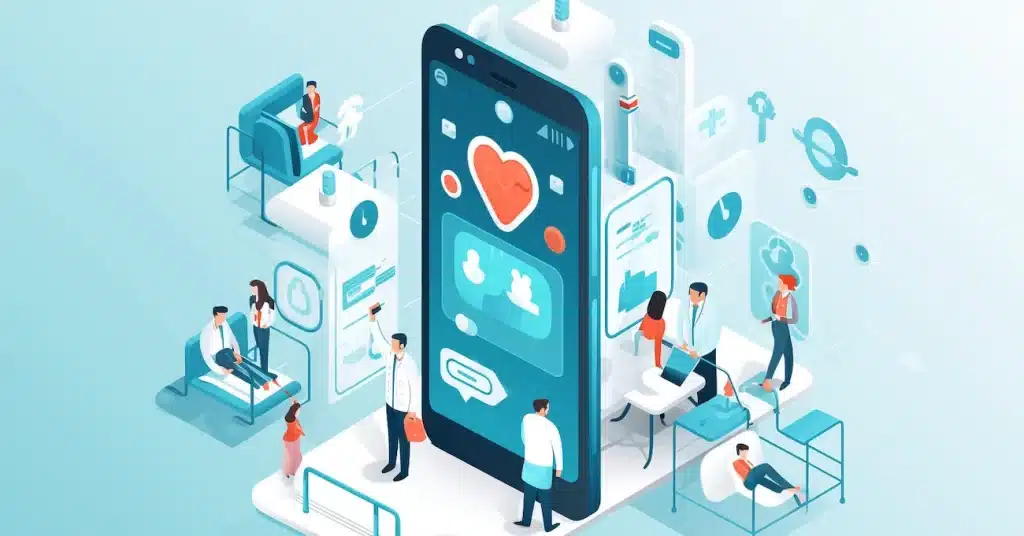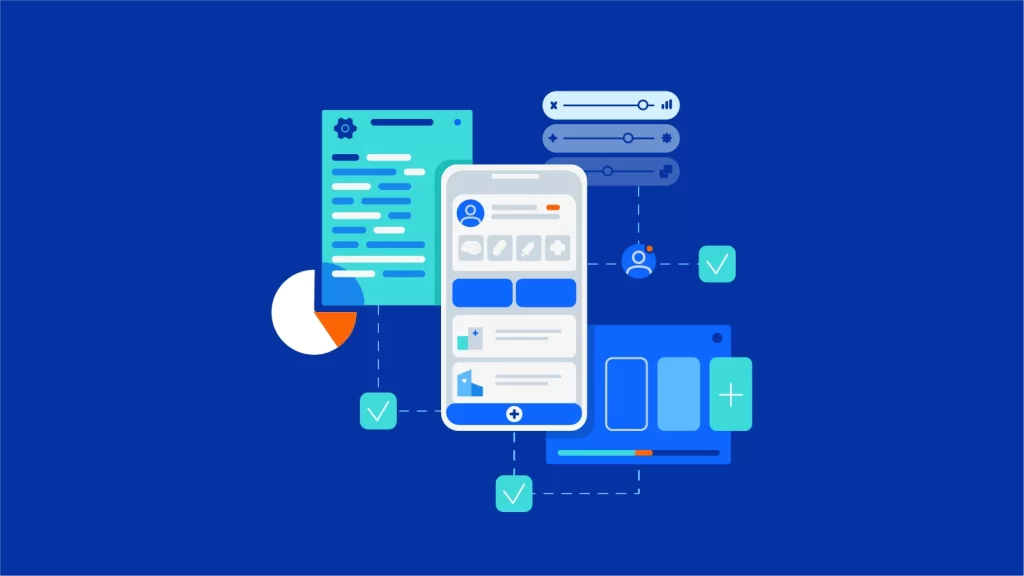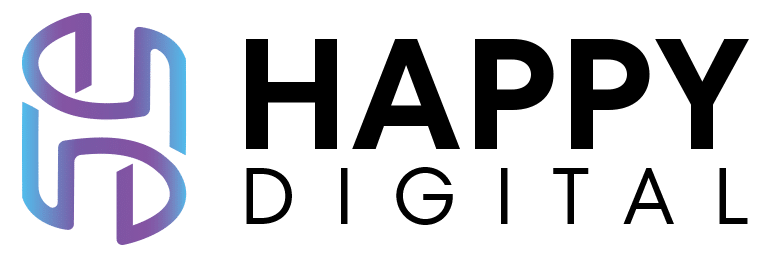Navigating the intricate landscape of health-focused app development demands a meticulous approach that merges regulatory compliance with cutting-edge best practices. As the digital health realm continues to evolve at a rapid pace, the imperative of adhering to stringent guidelines while fostering innovation remains paramount. From data privacy considerations to user-friendly interfaces, the convergence of compliance and best practices is pivotal in shaping the future of mobile health applications. Stay tuned to unravel the essential strategies and insights that underpin the successful creation of health-centric apps in today’s dynamic healthcare ecosystem.
Understanding Compliance for Mobile Health Apps
Navigating compliance standards in health tech apps is crucial for developers to safeguard user data and uphold operational integrity. Understanding key regulations and risks associated with non-compliance is essential in ensuring the reliability and security of mobile health applications. By prioritizing adherence to established guidelines, developers can mitigate legal liabilities and maintain user trust in the digital health landscape.
Key Compliance Standards in Health Tech Apps
Navigating the regulatory landscape in health tech app development involves understanding key compliance standards like HIPAA for data protection and GDPR for European user considerations. By ensuring adherence to these regulations, developers can safeguard user data and maintain the integrity of their mobile health apps. Staying informed and implementing robust compliance measures are essential steps in creating trustworthy and effective digital health solutions.

HIPAA and Health App Development
Developing health-focused mobile applications requires a comprehensive understanding of HIPAA compliance regulations to ensure the protection of user data and the integrity of healthcare services.
Key Points:
- Data Encryption: Implement robust encryption measures to safeguard sensitive information.
- User Authentication: Utilize secure login mechanisms to control access to patient data.
- Audit Trails: Maintain detailed logs of data access and modifications for accountability.
GDPR Considerations for European Users
With the increasing utilization of mobile health apps in Europe, understanding GDPR considerations is essential for ensuring compliance in the development of health-focused applications. The General Data Protection Regulation (GDPR) sets strict guidelines for the collection, processing, and storage of personal data of European users. Developers must implement robust data protection measures, obtain user consent, and provide transparent privacy policies to align with GDPR requirements and safeguard user information.
Risks of Non-Compliance in Mobile Health Apps
Ensuring compliance with regulations is imperative for developers of mobile health apps to mitigate risks and uphold user data security and functional reliability. Non-compliance can lead to severe consequences, including legal penalties, reputational damage, and compromised patient safety. To navigate the complexities of regulatory requirements effectively, developers should:
- Stay informed about the latest regulations and updates in the healthcare industry.
- Conduct regular audits and assessments to ensure adherence to data privacy and security standards.
- Implement robust encryption protocols and authentication mechanisms to safeguard sensitive health information.
Designing Mobile Health Apps: Best Practices
The success of mobile health apps hinges on the effective implementation of user experience principles and the integration of accessibility features. By prioritizing user-centric design and ensuring inclusivity, developers can create apps that cater to diverse user needs and preferences. Embracing these best practices fosters a positive user experience and promotes the widespread adoption of health-focused applications.
User Experience Principles for Health Apps
Developing mobile health apps that prioritize user experience is essential for optimizing patient engagement and overall effectiveness in digital healthcare delivery. To enhance user experience in health apps, developers should consider the following principles:
- Simplify Navigation: Ensure intuitive and easy-to-use navigation to help users find information quickly.
- Personalization: Tailor app features to individual user needs and preferences for a more personalized experience.
- Feedback Mechanisms: Incorporate feedback loops to gather user input and continuously improve app functionality and usability.
Accessibility Features in Mobile App Design and Development
Incorporating accessible features in mobile health apps is paramount for ensuring inclusivity and usability for all users. When designing these apps, developers should prioritize features such as text-to-speech capabilities, adjustable font sizes, high color contrast options, and compatibility with screen readers. By implementing these accessibility features, developers can cater to users with visual, auditory, or motor impairments, ensuring they can effectively navigate and utilize the app’s functionalities. Additionally, providing alternative text for images, intuitive navigation structures, and clear instructions can further enhance the app’s accessibility. Ultimately, a commitment to accessibility not only broadens the reach of the app but also aligns with ethical considerations of providing equitable access to healthcare resources for all individuals.
Integration of Compliance Management Tools in Health Apps
As developers strive to ensure adherence to regulatory standards in health apps, integrating compliance management tools becomes imperative for automating checks and leveraging APIs to access compliance data efficiently. By incorporating these tools seamlessly into app development processes, developers can enhance the overall compliance framework and streamline regulatory procedures. This integration not only facilitates compliance monitoring but also contributes to maintaining the security and reliability of health-focused applications.
Automating Compliance Checks
Efficiently automating compliance checks in health apps is imperative for ensuring data security and regulatory adherence in the realm of digital health. To achieve this, developers can integrate compliance management tools into their apps, streamlining the process and mitigating risks. Here are three key ways this can be accomplished:
- Utilizing automated scanning tools to regularly check for compliance gaps and vulnerabilities.
- Implementing real-time monitoring systems to ensure continuous compliance with changing regulations.
- Integrating automated reporting functionalities to provide detailed insights into compliance status and potential areas for improvement.
Using APIs for Compliance Data
To enhance the effectiveness of compliance management in health apps, developers can leverage APIs to seamlessly integrate compliance data into their applications. By utilizing Application Programming Interfaces (APIs), developers can access external compliance management tools and services, allowing for real-time monitoring and implementation of compliance requirements. This integration streamlines the process, ensuring that health apps remain up-to-date with the latest regulations and standards. APIs facilitate the secure exchange of data between the app and compliance tools, enabling automated checks and notifications to alert developers of any potential issues. This proactive approach not only enhances the app’s compliance capabilities but also contributes to a more robust and trustworthy digital health ecosystem.
Benefits of Using APIs for Compliance Data
| Benefit | Description |
|---|---|
| Real-time Monitoring | Enables continuous oversight of data flows and transactions, ensuring that compliance standards are met at all times. |
| Automated Compliance Checks | Facilitates the automated verification of data against compliance rules, reducing manual efforts and the risk of human error. |
| Seamless Integration | Allows for easy integration with existing systems, streamlining processes and ensuring consistency across different platforms. |
| Enhanced Data Security | Strengthens security protocols by implementing standardized, up-to-date methods for data encryption and access control through API endpoints. |

Privacy and Security: Safeguarding User Data in Mobile Health Apps
Safeguarding user data in mobile health apps is a paramount concern in ensuring the privacy and security of individuals’ sensitive health information. To effectively protect user data, developers must implement robust privacy and security measures, including:
- Data Encryption: Utilize strong encryption methods to safeguard user data both at rest and in transit. Encryption helps prevent unauthorized access to sensitive information, ensuring that health data remains confidential and secure.
- User Authentication: Implement secure authentication mechanisms such as biometric authentication or two-factor authentication to verify users’ identities. By adding an extra layer of security, developers can mitigate the risk of unauthorized access to health data.
- Regular Security Audits: Conduct regular security audits and vulnerability assessments to identify and address potential security gaps proactively. By staying vigilant and addressing security issues promptly, developers can strengthen the overall security posture of the mobile health app, reducing the risk of data breaches and unauthorized access.
Testing and Quality Assurance for Mobile Health Apps
Ensuring the reliability and functionality of mobile health apps through rigorous testing and quality assurance processes is essential in upholding the standards of digital healthcare delivery. Testing for mobile health apps involves various stages to identify and rectify issues before deployment. Quality assurance not only ensures the app functions as intended but also guarantees data security and compliance with healthcare regulations.
To illustrate the testing and quality assurance process, the following table outlines key steps and considerations:
| Testing Stage | Description |
|---|---|
| Unit Testing | Testing individual components or functions of the app to ensure they work correctly. |
| Integration Testing | Verifying that different modules of the app work together seamlessly. |
| Performance Testing | Assessing the app’s speed, responsiveness, and stability under various conditions. |
| Security Testing | Identifying vulnerabilities and ensuring data encryption to protect user information. |
Developing for Multiple Platforms: iOS and Android Compliance
In the realm of health-focused app development, addressing compliance requirements for both iOS and Android platforms is a critical aspect that developers must meticulously navigate. Ensuring that health apps meet the stringent standards set by Apple’s App Store and Google Play Store is essential to guaranteeing user safety and data security. Here are three key considerations when developing health-focused apps for multiple platforms:
- Platform-Specific Guidelines: iOS and Android platforms have distinct sets of guidelines and requirements for health apps. Developers need to familiarize themselves with these guidelines to ensure that their apps comply with platform-specific regulations regarding data privacy, security, and user consent.
- Consistent User Experience: While developing for multiple platforms, maintaining a consistent user experience across iOS and Android devices is crucial. Design elements, functionality, and features should align seamlessly to provide users with a cohesive experience, irrespective of the operating system they are using.
- Regular Compliance Checks: As regulations and guidelines frequently evolve, developers must conduct regular compliance checks to ensure that their health apps remain up to date with the latest requirements. This includes staying informed about changes in data protection laws, security protocols, and platform-specific policies to avoid any compliance issues.
Regulatory Updates and Their Impact on Mobile Health Apps
The ever-changing landscape of regulatory updates significantly influences the development and utilization of mobile health apps in the healthcare industry. Keeping abreast of these updates is crucial for developers to ensure compliance with the latest standards and regulations, ultimately enhancing the quality and safety of health-focused applications. Below is a table highlighting some recent regulatory updates and their impact on mobile health apps:
| Regulatory Update | Impact on Mobile Health Apps |
|---|---|
| GDPR Compliance | Requires stringent data protection measures in apps |
| HIPAA Regulations | Mandates secure handling of protected health information |
| FDA Guidelines for Mobile Medical Applications | Defines regulations for medical apps and software |
| FCC Regulations on Telehealth Services | Sets standards for telehealth services and app usability |
Happy Digital’s Role of Data in Health Tech Apps
Understanding the significance of data in health tech apps is paramount for developers committed to ensuring user privacy and enhancing the overall user experience. By implementing data collection best practices and analyzing user data responsibly, Happy Digital can contribute to building secure and trustworthy health-focused applications. This approach not only aids in regulatory compliance but also fosters a culture of transparency and accountability in the digital health landscape.
Data Collection Best Practices
Amidst the dynamic landscape of health tech apps, Happy Digital plays a crucial role in defining data collection best practices to ensure user privacy and optimize healthcare outcomes. When it comes to collecting data in health-focused applications, developers should consider the following best practices:
- Minimal Data Collection: Only gather data that is essential for the app’s functionality and the user’s health needs.
- Anonymization and Encryption: Implement robust security measures to protect sensitive user data, such as anonymizing data wherever possible and encrypting information in transit and at rest.
- User Consent and Transparency: Obtain explicit user consent for data collection, storage, and usage, and provide clear explanations of how their data will be handled to build trust and accountability.
Analyzing User Data Responsibly
In the realm of health tech apps, responsible analysis of user data is paramount for Happy Digital to uphold ethical standards and drive meaningful insights for improved healthcare outcomes. By employing advanced analytics tools and techniques, Happy Digital can extract valuable information while ensuring user privacy and data security. It is essential to adhere to stringent data protection regulations, such as HIPAA, to safeguard sensitive health information. Through responsible data analysis, Happy Digital can enhance personalized healthcare services, identify trends for preventive care, and improve overall patient well-being. Transparent communication with users regarding data usage and obtaining explicit consent for analysis are crucial steps in building trust and maintaining compliance in the development of health-focused applications.
User Onboarding and Education in Health Tech Apps
Navigating the complexities of user onboarding and education is a crucial aspect of developing effective health tech apps. When it comes to health-focused applications, ensuring that users understand how to utilize the app safely and effectively is paramount. Here are three key strategies to consider for successful user onboarding and education in health tech apps:
- Clear and Concise Tutorials: Provide users with step-by-step tutorials that explain the app’s features and functionalities in a clear and concise manner. Visual aids such as videos or interactive guides can help users grasp complex health concepts more easily.
- Personalized Onboarding Experience: Tailor the onboarding process to the individual user’s needs and preferences. By collecting relevant information during onboarding, such as health goals or existing medical conditions, you can customize the app experience to better meet the user’s requirements.
- Continuous Education and Support: Implement features that offer ongoing education and support to users. This could include regular health tips, reminders for medication intake, or access to a chatbot for quick answers to health-related questions. Keeping users engaged and informed will enhance their overall experience with the app and encourage long-term usage.
Future Trends in Mobile Health App Development
The landscape of mobile health app development is rapidly evolving, with emerging technologies playing a significant role in shaping the future of healthcare services. As developers strive to meet compliance regulations, the focus is shifting towards ensuring data security and functional efficacy in these applications. Understanding the latest trends in health tech apps is crucial for developers to stay ahead in this dynamic industry and deliver innovative solutions that prioritize user safety and well-being.
Emerging Technologies and Compliance
As developers delve into the realm of mobile health app development, staying abreast of emerging technologies and compliance standards is paramount for ensuring the efficacy and security of digital healthcare solutions. Keeping up with the latest trends and regulations in the industry is crucial for creating successful health-focused apps. Here are three key considerations for integrating emerging technologies while maintaining compliance:
- Data Security Measures: Implement robust encryption protocols and secure data storage practices to protect sensitive user information.
- Interoperability Standards: Ensure seamless integration with existing healthcare systems and devices to facilitate smooth data exchange.
- Regulatory Compliance: Stay up-to-date with HIPAA, GDPR, and other relevant regulations to safeguard patient privacy and maintain legal compliance.
Comprehensive Software Development Solutions
Unlock the potential of digital transformation with our bespoke software development services, engineered to foster innovation, maximize efficiency, and catalyze business growth.
Conclusion
In conclusion, adherence to compliance regulations and best practices is crucial in the development of mobile health apps to ensure user data privacy and operational efficiency. Integrating compliance management tools, prioritizing privacy and security measures, and conducting thorough testing are essential steps in creating a secure and reliable digital health ecosystem. By staying informed about regulatory updates and embracing emerging trends, developers can enhance user confidence and contribute to the advancement of health technology applications.
How Do Developers Ensure That Their Mobile Health Apps Are Compliant With Constantly Evolving Regulations and Standards?
Developers ensure compliance with evolving regulations and standards for mobile health apps by staying informed about industry updates, conducting regular audits, engaging legal counsel, following established guidelines, and prioritizing data security and functional integrity.
What Are Some Common Pitfalls to Avoid When Designing Mobile Health Apps to Ensure Usability and Accessibility for All Users?
To ensure usability and accessibility for all users when designing mobile health apps, developers should avoid common pitfalls such as complex navigation, lack of inclusive design features, inadequate user testing, and failure to comply with accessibility guidelines.
How Can Developers Effectively Integrate Compliance Management Tools Into Their Mobile Health Apps to Streamline Regulatory Processes?
Developers can effectively integrate compliance management tools into mobile health apps by leveraging secure APIs, encryption methods, and user authentication protocols. Implementing robust data protection measures and regularly updating software can streamline regulatory processes and ensure compliance.
What Are Some Advanced Techniques for Enhancing Privacy and Security Measures to Protect User Data in Mobile Health Apps?
To enhance privacy and security measures in mobile health apps, developers can employ advanced encryption techniques, implement multi-factor authentication, conduct regular security audits, and ensure compliance with industry standards like HIPAA and GDPR, safeguarding user data and fostering trust in the digital health ecosystem.


